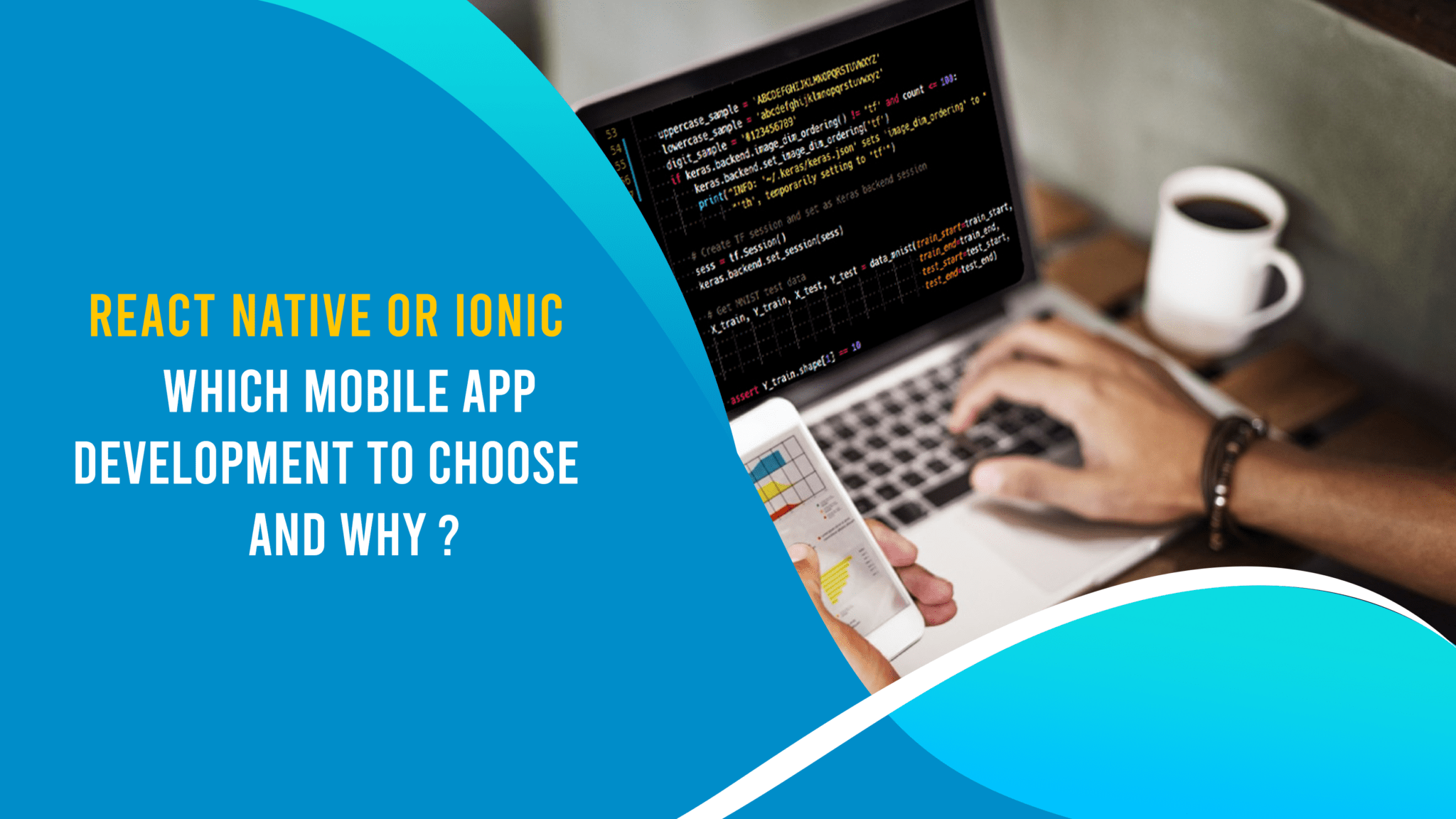The increased use of smartphones has created a wide opportunity for all application developers. Almost in every sector, there are numerous applications available. Developers are continuously trying their level best to use apps very simply by opting for innovative approaches. When so many options are available to choose, there comes the difficulty as to which one to select. Here we are to make your task a little easier.
Below, we have tried to compare two superb quality mobile app developments, namely React Native and Ionic. Hope it clears all your doubts and makes you able to choose the best for you. So let us dive deeper into this:
First, let us understand the two in simple language:
React Native
React Native blends all the best parts of native development with React without compromising its flexibility. It consists of a cross-platform framework that allows its end-users to create apps both on Android and iOS. To code in JavaScript, it uses React. The quality that makes it superior to all others is that it is a single JavaScript codebase used for both platforms.
React Native plays the role of the bridge that paves the way between an app and a targeted platform in developing apps. As everything works with JavaScript, it is really easy to understand this React Native. React Native Developer is none other than Facebook and is handling it since 2015. The best part about React is that you can see them as soon as you save the changes. There is no need for the native builds to be finished.
As a developer, you can reuse their code from IOS for Android. To make their customers satisfied, it gives a core set of a platform that consists of native components. These are View, Text, and Image.
Ionic
As it justifies its name, Ionic app development assists you in creating high-quality apps cross-platform. It was launched in 2013, and in a very short time, it has gained more than 5 million users. Ionic believes in the feature of write once run anywhere. It uses a single code that can be run everywhere with the help of javascript and the web. It is super easy to be learned as it integrates with Angular React, Vue. The first version of Ionic is rested on the Angular, PWA shorts. You can build mobile applications without hiring native developers.
The main advantage of this developing app is that it reduces the cost of development and codebases maintenance. If you want to launch your app in both application stores quickly, this app is just for you to integrate it with other numerous tools to get the best use of this application.
Some Eye-catching Comparisons:
- Languages Used: To choose between the two, look for the languages used in the two on a priority basis. React native uses JSX that makes it look like HTML, whereas ionic uses Typescript.
- Performance: You will always want to work with the developing app that has better performance. React native gives better native performance compared to ionic.
- Documentation: Another aspect to conclude as to which one to go for is the documentation. React native provides very basic documentation, whereas Ionic has very clean, consistent, and simple documentation.
- Testing: The easy to test your development, the better it is in the long run. It not only makes your task easier but also saves your precious time. A device or an emulator is needed for testing in React Native, whereas no such device is being used to test for Ionic.
- Reusability: Do you want to reuse the code. If yes, then Ionic is the one for you. React Native Developing Company doesn’t allow reusability of the code, whereas Ionic facilitates the same. This feature saves a lot of your precious time and effort.
- Platform: To correlate the two, think of the platforms you have to create the application. React native allows app developers to create only for Android or IOS users. On the other hand, Ionic assists in developing apps that can get used on desktop, mobile, and web.
- Pocket-Friendly: One of the most crucial parameters to select any app development is how much to spend. Ionic is more wallet-friendly as compared to React native. The sole reason being ionic applications can be run anywhere across multiple platforms.
- Easy to Use: When you think of any task especially developing an application, the first thing that comes to mind is how it is easier to develop? To develop an app in React, you have to gain knowledge of JavaScript and React.Js. On the other hand, Ionic is far flexible than the tech used in Angular, Vue, and React. It allows you to develop in any framework and can function anywhere.
- Support: One of the most important points is to have your issue resolved quickly. When you’re facing any issue during your task, you eagerly want to get it resolved as soon as possible. React Native wins the race as its community support is too strong when they are set side by side.
Conclusion!
Both the developing apps are not new to the developing market. They have their pros and cons. To select between is undoubtedly very hard. You should be clear in your mind about what your requirements are. If you would ask me, I will suggest you go with React Native. The main reason behind it is that it is fully capable of building native apps. Its components are fully native; thereby, the end-user will not differentiate between Native and React native. By choosing React, you’re going to have not only strong but also supportive app development. This was just my opinion, rest it all depends on you as to which one to go for.
Be very wise in picking up your developing app. Jot down the use cases and preferences of your app to choose from them. Keep changing the development world with your innovative ideas in the field of application development.

